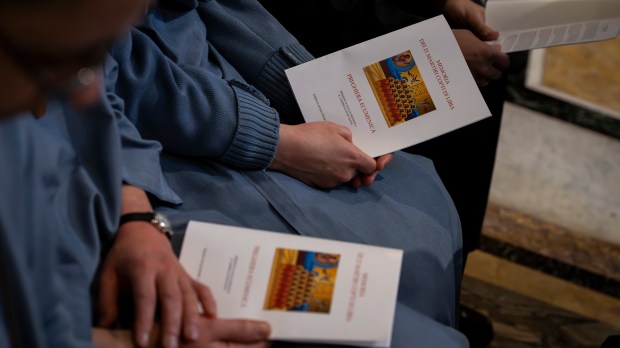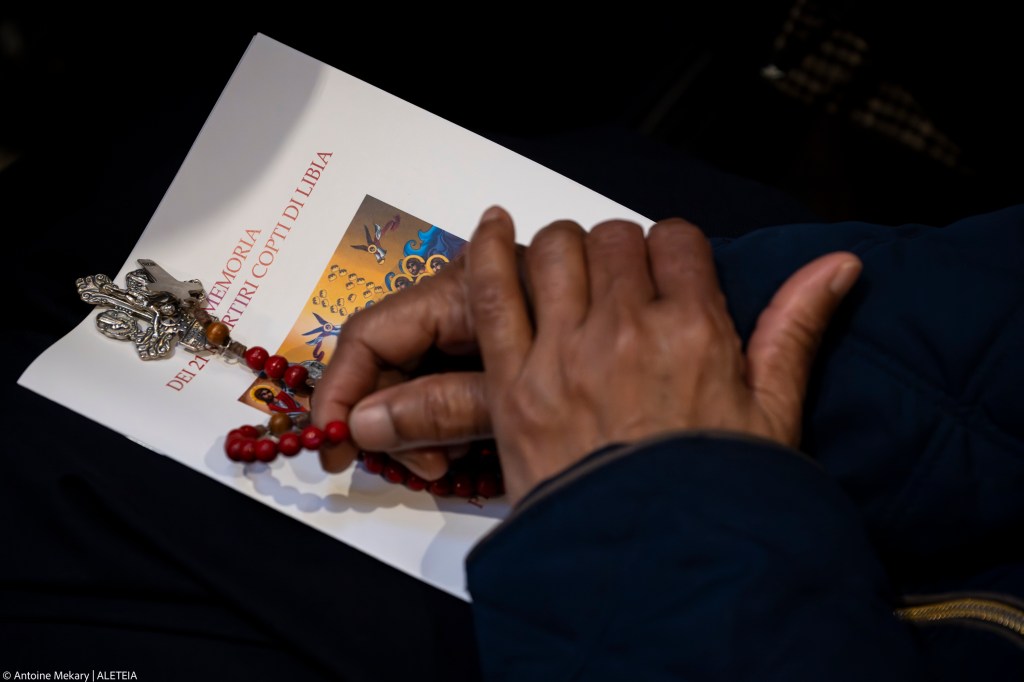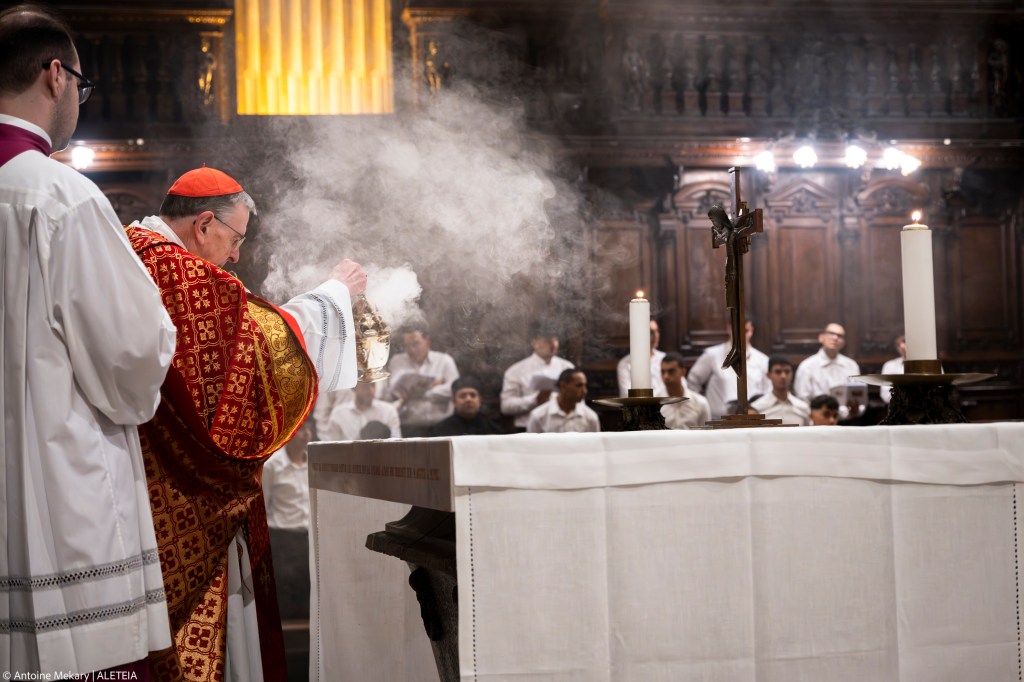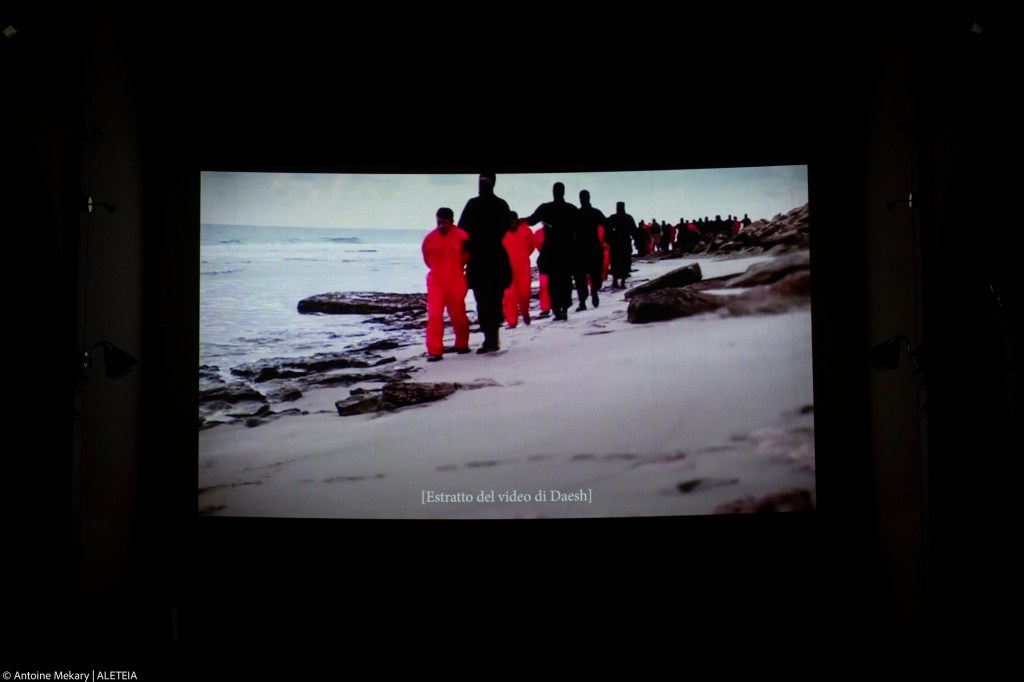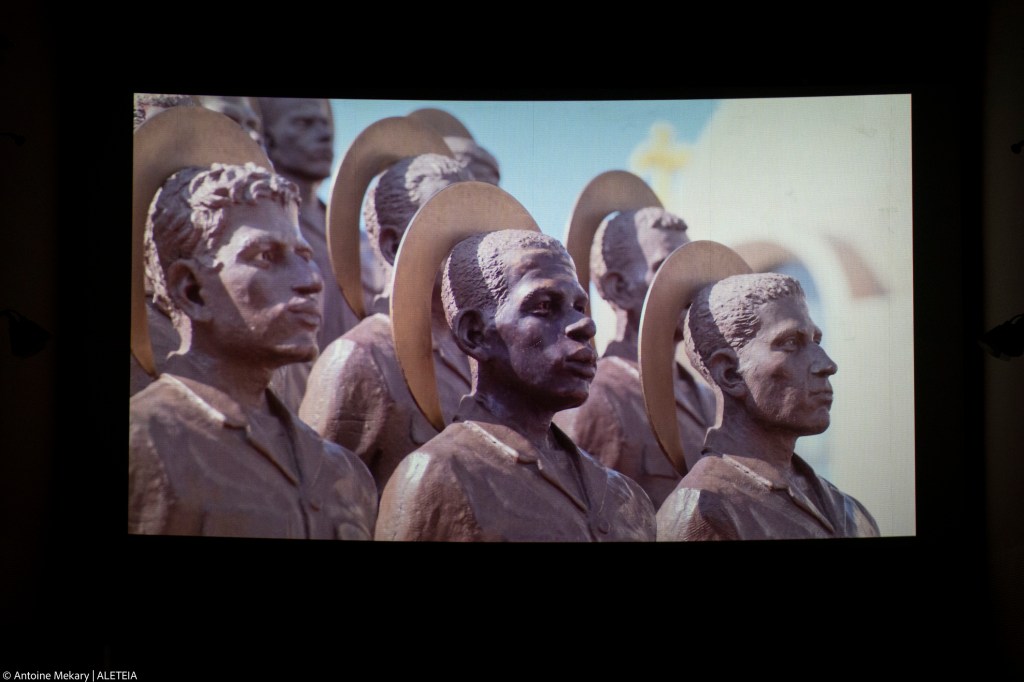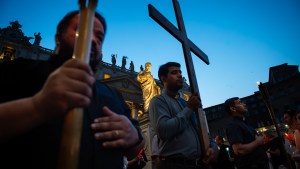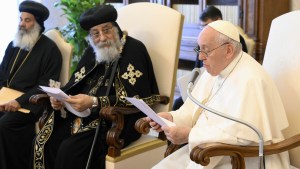An ecumenical celebration was held at St. Peter’s Basilica on February 15, the ninth anniversary of the execution of 20 Egyptian workers and a Ghanaian by Islamic State terrorists. The massacre, which took place on February 15, 2015 on a beach in Libya, shocked the entire world, but it also accelerated a rapprochement between Coptic Orthodox and Catholics around the shared memory of the martyrs.
Martyrs recognized by both Churches
Their names were Milad, Abanub, Maged, Youssef, Kirollos, Bishoy, Samuel, Malak, Tawadros, Gerges, Mina, Hany, Samuel, Ezzat, Luka, Gaber, Essam, Malak, Sameh, Gerges, and Matthew. These 21 men, sordidly executed by ISIS militiamen on a Libyan beach, were recognized as saints and martyrs by the Coptic Orthodox Church just six days after their deaths.
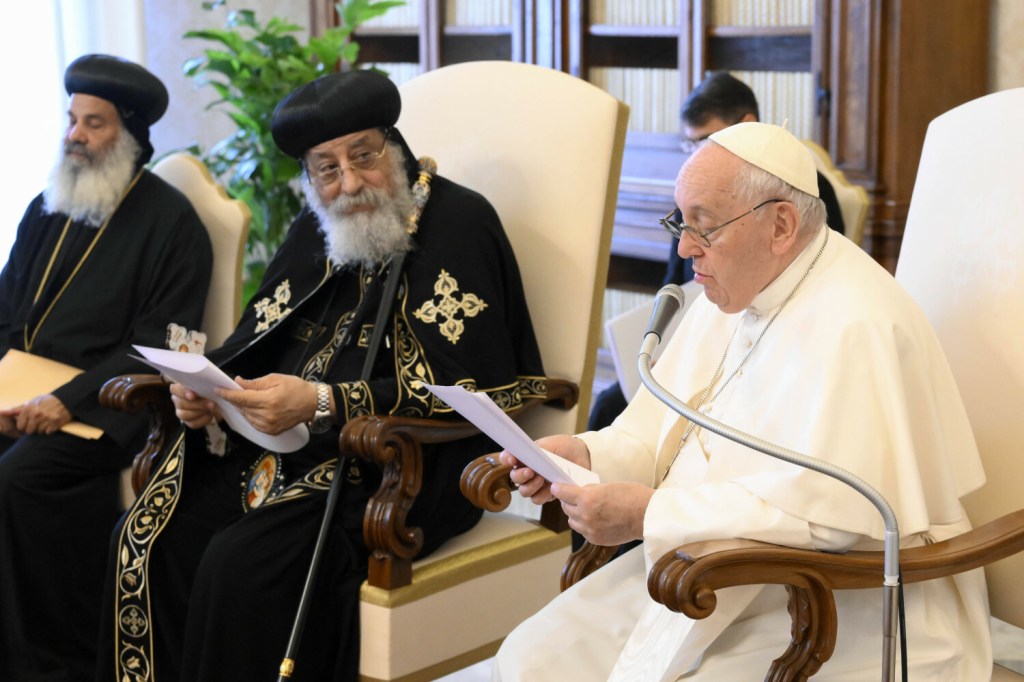
Pope Francis announced their inclusion in the Roman martyrology in 2023, on the occasion of the visit of Coptic Pope Tawadros II. Thus for the first time, this year, this shared remembrance gave rise to an ecumenical celebration bringing together Catholics and Coptic Orthodox in a side chapel of St. Peter’s Basilica. Cardinal Kurt Koch, Prefect of the Dicastery for Promoting Christian Unity, presided over the celebration. The discreet Swiss cardinal, his eyes shining, made no secret of his emotion as this historic event unfolded.
The blood of martyrs, a seed of unity
Recalling that “the first martyr” was Jesus Christ himself, Cardinal Koch underlined in his homily that martyrdom is “the highest witness to love,” and that it bears great fruitfulness.
“Just as the early Church was convinced that the blood of martyrs would be the seed of new Christians, so today we can nourish the hope, in faith, that the blood of so many martyrs of our time may one day prove to be a seed of full ecumenical unity of the Body of Christ, wounded by so many divisions,” he said.
Despite the solemnity of the occasion, the celebration unfolded in a joyful atmosphere. The young choristers from Rome’s Coptic-Orthodox parish enthusiastically shared some of the melodies from their liturgical heritage, even if this meant running a little over schedule.
A powerful documentary
When the participants were due to go to the Vatican film library for a screening of Samuel Armnius’ documentary dedicated to these martyrs, “The 21,” the atmosphere of joyful improvisation came as something of a surprise to the Vatican staff responsible for hosting the event.
The Egyptian relationship with time is not necessarily in sync with that of the Vatican … “We’re going to end up sleeping here!” laughed a Coptic bishop, faced with technical delays at the start of the projection.
But this report from the Egyptian village where 13 of the 21 martyrs came from, broadcast in a version with Italian subtitles, deeply moved the audience. The proud faces of the little girls paying homage to a martyred father they hardly knew, and the words of peace and forgiveness from the parents of some of the hostages, demonstrate the concrete fruitfulness of a life given to God, without resentment, as shown by the dignified faces of the hostages before their execution.
This documentary also offers a response to the propaganda film scripted and developed by the terrorists to humiliate “the Nation of the Cross,” but which backfired, becoming instead a shining testimony to Christian hope. These martyrs have also become a source of national pride for Egypt, where the Christian minority has found new support and a firmer footing after years of hardship marked by numerous attacks.
Joy expressed in gifts and song
Far from being a sad, formal commemoration, this gathering, which sealed the rapprochement between the Churches, was a moment charged with joy and simplicity, which stood out in the often hushed atmosphere of the Vatican.
“We’re Egyptians, so you won’t be able to leave without a gift from us,” said Samuel Armnius at the end of the event. He then presented each participant with an icon representing the martyred saints of 2015.
A song sung after the film screening by a Coptic-Catholic bishop, and spontaneously taken up by a Coptic-Orthodox priest, showed that the ecumenism of blood could lead to a relationship between the Churches based on trust, complementarity, and brotherhood, far from the mistrust that could still have prevailed a few years ago.
